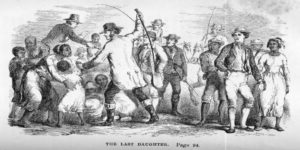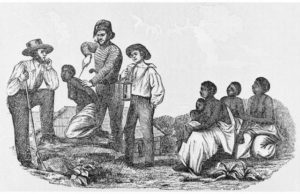Article IV. Three British Wars with Funny Names and Some Importance
PRESENT AUTHOR’S COMMENTARY:


By the time I was practicing general surgery for the Navy Seabees in Port Hueneme, California in 1969 during the Vietnam War, ear injuries were not terribly uncommon, and they often involved knives. The rowdy Seabees and marines at the time suffered sliced, notched, and even amputated, ears upon occasion; and I—as the only surgeon on the base at the time—repaired them as a matter of course. The method was not all that complicated or sophisticated: simple suturing the ear back together or replacing it when it was available. I referred out patients who had lost their ears altogether, and the local private ENT surgeons replaced them with modern and pleasing results. So far as I know, the surgeries were all successful.
Even if surgical technique had been advanced enough to accomplish a successful repair of Jenkins’ severed ear, Britain and Spain’s competing commercial interests would almost certainly would have led to war anyway. The 1713 Treaty of Utrecht had granted the British a monopoly on supplying slaves to the Spanish colonies but limited them to selling just one shipload of goods [Navio de Permiso] to the Spanish per year for the next thirty years. British merchants often ignored this agreement, trading in fresh goods—including slaves–at Spanish colonial ports and smuggling contraband. The Spanish government countered this by licensing privateers known as guarda costas to enforce the treaty’s provisions and counteract the British piracy and smuggling. British merchants subsequently complained of depredations and mistreatment at the hands of the Spanish—a bit hypocritical, since they did the same things. Lengthy diplomatic negotiations between the two nations ensued, culminating in the Convention of the Pardo in January 1739. This, however, was unsuccessful in finding a diplomatic resolution to the quarrel, leaving the two countries ripe for war. Great Britain seized on the Jenkins’ Ear incident to launch its war of greed.
David Grann, author of the superb historical book, The Wager, proffered this opinion—based on his very extensive research:
“The conflict was the result of the endless jockeying among the European powers to expand their empires. They each vied to conquer or control ever larger swaths of the earth, so that they could exploit and monopolize other nations’ valuable natural resources and trade markets. In the process, they subjugated and destroyed innumerable indigenous peoples, justifying their ruthless self-interest including the reliance of the ever-expanding Atlantic slave trade—by claiming that they were spreading “civilization” to the benighted realms of the earth. Spain had long been the dominant empire in Latin America, but Great Britain, which already possessed colonies along the American eastern seaboard, was no on the ascendance—and determined to break its rival’s hold… British political and economic interests had their own ulterior motivations for war. Although English merchants had been widely prevented from trading in Spanish-controlled ports in Latin America, they had found a sinister way in. [in the form of the slave quota asiento a license to sell nearly five thousand African people a year as slaves in Spain’s Latin-American colonies. Because of this abhorrent new agreement, English merchants were able to use their ships to smuggle such goods as sugar and wool.”
In a model of irony and hypocrisy, British merchants stoked public outrage at what they charged were Spanish “depredations” against them–and there was, no doubt, significant abuse of the kind alleged. The British public’s outrage and bellicosity was raised to a new pitch: Seldom had English indignation swelled higher–one speaker talked of Englishmen in chains, another of Englishmen crawling with vermin in Spanish prisons. Every artifice of malice or ingenuity was used–the Spanish were cruel, the Spaniards were proud, the days of Elizabeth were remembered with regret, the days of Cromwell were appealed to with pride. Let there be an end of the haughtiness and cruelty and tyranny of the Spaniard by the assertion of the freedom of the Protestant Briton and the like. [Temperley, 1909]
But it was hardly all one-sided, a fact some British figures acknowledged privately, as British seamen and traders abused residents of the Spanish colonies: “One well-informed pamphleteer declared that he had seen Spaniards publicly sold as slaves in British Colonies, and that the seas swarmed with English pirates.”
The War of Jenkins’ Ear constitutes a minor episode in early American history, except for its significance for colonial Georgia. The conflict between the Spanish and English over the land between South Carolina and Florida lasted for nearly two centuries, but once formal hostilities began in 1739—only six years after Georgia’s founding—the survival of the colony hung in the balance. Georgia was eventually preserved as an English colony, but for a time the colony’s success seemed a dim hope. It factored highly in the establishment of both Georgia and Florida eventually becoming part of the thirteen colonies and later full-fledged states of the new United States of America.
While the name of the war might seem to be silly or the stuff of comic-opera, and one might be inclined to imagine a small and petty skirmish. However, this mid-18th century altercation between Britain and Spain to settle mutual claims of greed lasted for nearly a decade, resulting in the deaths of around 35,000 people. The War of Jenkins’ Ear was also hugely consequential in balance of power terms: it drove Spain “into the arms of France” and through the next ninety years posed a dire prospect for British foreign policy. Spain’s alliance with France produced grave complications for England in 1743, contributed to the fall of the greatest of English ministers in 1761, and to the loss of the greatest of English colonies in 1783. Other historians consider that the most serious consequence of the War of Jenkins’ Ear was that King George was ousted as king of England.
By the early 1900s, Great Britain had become the largest empire in history, ruling over 400 million people and a quarter of the earth’s landmass. But in 1746, the British government was pre-occupied with barely maintaining public support after many dreadful losses in the first half of the century.


